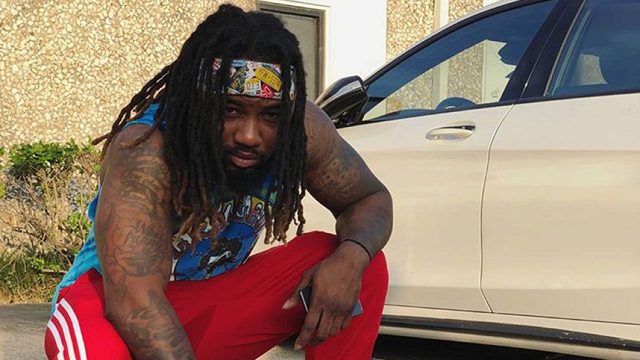It’s been over 10 years since the artist formerly known as Sauce Kid waylaid a popular Remy Ma song and flipped it into one of the most unlikely hit records in Nigerian hip-hop history.
Powered by a gibberish but addictive chorus, and some braggadocios bars that later became his trademark, “Yebaribaba Sanboribo” lit up the charts and set Sauce Kid apart as a rapper to look out for.
The young upstart would also try his hands on the even more popular “Lean Back” beat.
He then packaged the two songs, as well as several other freestyles, into a mixtape, Money Long: Best of Both Worlds, and released it in 2008.
But a pair of Scott Storch instrumentals isn’t the only thing Sinzu and Remy share in common, the two would suffer the ignominy of going to jail for crimes they admit to committing, but they would also be fortunate enough to have loyal associates help them find their feet soon after their release.
In Remy’s case, it was her former boss and “Lean Back” collaborator Fat Joe, with whom she would go on to have another hit in 2016’s “All The Way Up”, as well as record a joint album.
In Sinzu’s case, it was Davido an artist who was the lesser known of the two when he sang the chorus to “Carolina” in 2011 but has developed into one of Africa’s biggest pop stars ever since.
Shortly after his release, Sinzu was unveiled as the latest signing on DMW, arguably the most exciting independent label in the country at the moment.
Since then, anticipation for Sinzu’s comeback has been building up with the #ZuFree movement, it’s also been helped by solid guest features on K. Slim’s Chief album and label mate Dremo’s Codename EP.
But unlike Remy who has successfully repositioned herself even after a lengthier stint away, all that support may still not be enough for one of Nigerian hip-hop’s prodigal sons to make a full return.
The first clear sign that all wasn’t well with Sinzu himself came before his 2-year prison stint.
In 2012, the rapper changed his name from Sauce Kid to Sinzu; a christening that, in hindsight, seems like it was presided over by the devil.
According to Sinzu: “Sauce Kid is my real lyrical side, while Sinzu is my more forgiving, funny side.”
But it appears that the rapper’s “fun-loving” side is also his least profitable — Sauce Kid was a more successful rapper than Sinzu has been, so far — it was also his most deviant.
Sinzu’s run-ins with the law started the following year; he caught a number of cases and would eventually be found guilty of credit card fraud in 2017.
The year before he was convicted, Sinzu released his second mixtape Da Rip Off.
By that time, the rapper had relocated fully to America and seemed to be more interested in doing the things he rapped about than actually doing any rapping. So, expectedly, the Nigerian hip-hop community moved on.
Nigeria was first introduced to Sauce Kid in 2005 when his breakout single “Omoge Wa Jo” (featuring Mike Okri) became a mild hit.
Sauce stood out immediately; there was an entire subgenre of Nigerian rappers before him who had made careers out of mimicking their US mentors with their fashion sense, mannerisms and penchant for hard-core rap.
But Sauce was the real deal. He oozed the swagger and authenticity that many of his rap forbearers lacked.
On top of that, Sauce Kid infused local culture and street slang, and truly represented the best of the two worlds he was a product of.
But these days, Sinzu has all but dropped his green music passport for his blue one, and is so out of touch that he mistakenly referred to his new label as “DMV” in a recent interview.
The rapper hasn’t been to the country in 6 years, and it shows.
In 2015, Sinzu released his last project, Industreets, especially for his American audience.
Gone were the pidgin slangs, and catchy choruses with crossover appeal.
In their place, the waning MC amplified the money talk and made more and more references that understandably mirrored his current environment.
Sinzu’s last couple of projects have alienated his Nigeria-based fan base, and since the rapper has indicated that he has no plans to make a full return to Lagos, that gap will only grow wider.
However, with the landscape of Nigerian hip-hop far less competitive than even when he was at his peak, and with the severe lack of Sinzu’s brand of lyric-driven rap music, this direction feels like another missed opportunity in a career that has had a few.
Sinzu’s debut album African American will be 8 years old this coming Monday, it is the rapper’s last release to be distributed locally.
It’s also Sinzu’s only official album, which, for a rapper of his talent-level, is supremely disappointing.
Sinzu is no longer a promising 20-something but a veteran rapper, who’s frankly more myth than musician, especially to younger rap fans who missed his brief reign.
And this is the kind of problem that a cosign and a hit song from Davido alone won’t be able to solve.












